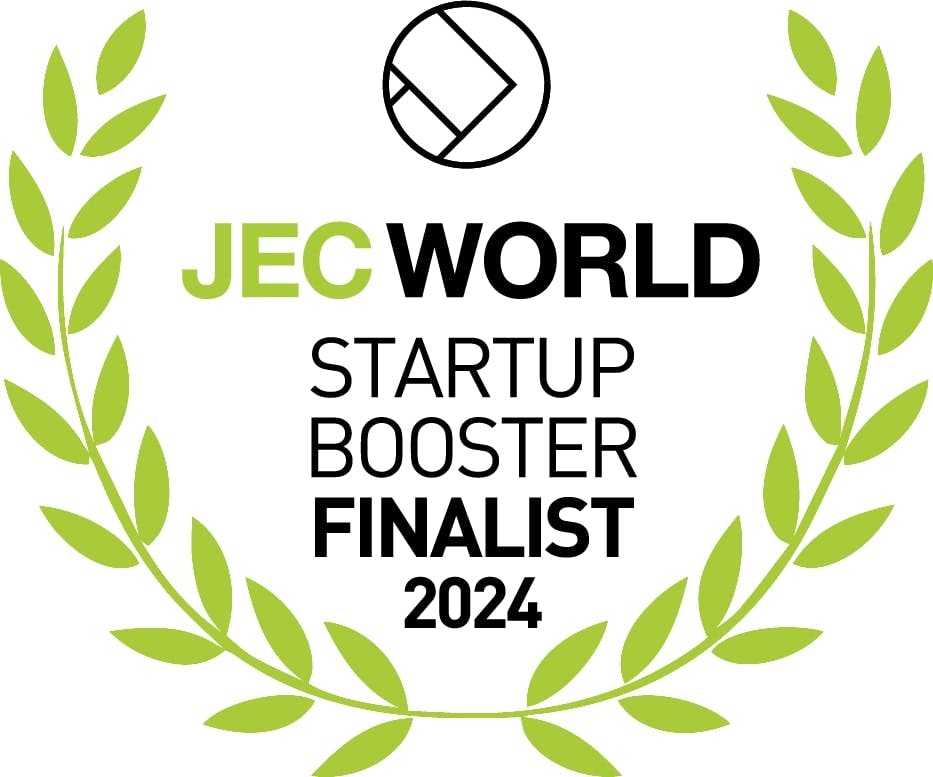MEDIA RELEASE
Engineers raise £1.3m to bring ‘supermaterials’ to mass market
● Plans for new office in Leamington Spa, creating new job opportunities
● Investment is first collaboration between British Business Bank’s Midlands and South West investment funds, with each contributing £350,000
Two engineers who developed a novel way to make advanced heat-resistant materials while experimenting on their kitchen stove have raised £1.3m.
Dr Danilo Di Salvo and Dr Richard Grainger of High Temperature Material Systems (HTMS) aim to make high-performance materials currently used in the aerospace industry available for mass market applications such as electric battery casings and automotive parts.
HTMS, which has a team of eight, has an office in Stratford-upon-Avon as well as a laboratory in Bristol. The investment will enable the company to open a new office in Leamington Spa and a production facility in the South West, and continue its research and development. Following its move to the new and larger premises, it expects to create 40 new job opportunities over the next four years.
The majority of the £1.3m investment has come from the British Business Bank’s Midlands Engine Investment Fund II and the South West Investment Fund, through their respective fund managers, Maven Capital Partners and Mercia Ventures.
It is the first time the two regional funds have collaborated on an investment, with each providing £350,000. Other investors include SFC Capital, DeepTech Labs, the US venture fund Plug and Play and angel investors.
HTMS specialises in Ceramic Matrix Composites (CMCs), which combine the heat-resistant properties of ceramics with fibres for added strength and flexibility. CMCs – which are used on the underside of the Space Shuttle - are more lightweight than metal and can withstand extreme environments, however, the huge cost of production means their use has been very limited to date.
Dr Di Salvo and Dr Grainger, who between them have over 20 years’ experience in the composites industry, have found a way to significantly reduce the energy, time and cost involved in producing CMCs. After developing the process at home, they set up HTMS in 2021 with the aim of bringing CMCs to a wider audience and creating the UK’s first domestic supply chain.
HTMS is already working with leading automotive and battery manufacturers, as well as Cranfield University and other research institutes. As its materials can withstand temperatures of up to 1400°C, the company is currently focusing on their use in exhaust parts, brake shims and electric vehicle battery casings – three of the key thermal challenges facing the automotive industry.
Dr Danilo Di Salvo, CEO and Co-founder of HTMS, said: “Richard and I saw the potential of advanced thermal composites but were frustrated with the high cost and lack of a UK supply chain. This is a fantastic moment for British manufacturing. We are excited to scale up manufacturing of our world-leading products and look forward to growing our business and championing British innovation.”
Rafi Khan, Investment Manager at Maven, said: “HTMS has developed a truly differentiated manufacturing process for high-performance ceramic composites, combining technical excellence with commercial insight. As industries seek lightweight, heat-resistant materials that are scalable and sustainable, HTMS’s platform is well placed to deliver real impact. We are pleased to support Danilo, Richard and the team as they enter their next stage of growth.”
Shubham Jaipuria, Investor at Mercia Ventures, added: “HTMS’s advanced materials open up new possibilities across a range of industries – from safer electric vehicles and more fuel-efficient aircraft to improved energy storage. By enabling the launch of the new laboratory, this investment will also help to create a domestic supply chain for these important new materials.”
Beth Bannister, Senior Investment Manager at British Business Bank, said: “This investment is the first time the Midlands Engine Investment Fund II and the South West Investment Fund have worked together. By bringing together our expertise and funding, we have been able to support HTMS’s expansion across both regions, helping to create skilled jobs, strengthen the UK’s supply chain for advanced materials, whilst supporting one of the key growth sectors identified in the UK’s modern Industrial Strategy.”
The Midlands Engine Investment Fund II aims to increase the supply and diversity of early-stage finance for smaller businesses in the Midlands, providing funds to firms that might otherwise not receive investment and helping to break down barriers in access to finance. It offers a range of commercial finance options with smaller loans from £25k to £100k, debt finance from £100k to £2m and equity investment up to £5 million.
To find out more about the Midlands Engine Investment Fund II and apply for funding through the regional fund manager partners, please visit the website.
ENDS
Notes to Editors
About the British Business Bank
The British Business Bank is the UK government’s economic development bank. Established in November 2014, its mission is to drive sustainable growth and prosperity across the UK and to enable the transition to a net zero economy, by improving access to finance for smaller businesses. Its remit is to design, deliver and efficiently manage UK-wide smaller business access to finance programmes for the UK government.
The British Business Bank’s core programmes support over £17.4bn of finance to almost 64,000 smaller businesses.
As well as increasing the supply and diversity of finance for UK smaller businesses through its programmes, the Bank works to raise awareness of finance options available to smaller businesses. The British Business Bank Finance Hub provides independent and impartial information to businesses about finance options, featuring short films, expert guides, checklists and articles from finance providers to help make their application a success.
The British Business Bank is also responsible for administering the government’s three Coronavirus loan schemes and its Future Fund, together responsible for delivering £80.4bn in finance to 1.67m businesses. These schemes are now closed to new applications.
British Business Bank plc is a public limited company registered in England and Wales, registration number 08616013, registered office at Steel City House, West Street, Sheffield, S1 2GQ. It is a development bank wholly owned by HM Government. British Business Bank plc and its subsidiaries are not banking institutions and do not operate as such. With the exception of BBB Investment Services Limited they are not authorised or regulated by the Prudential Regulation Authority or the Financial Conduct Authority. BBB Investment Services Limited is authorised and regulated by the Financial Conduct Authority. A complete legal structure chart for the group can be found at www.british-business-bank.co.uk.
About the Midlands Engine Investment Fund II
● Operated by the British Business Bank, the £400 million Midlands Engine Investment Fund II (MEIF II) provides a mix of debt and equity funding. MEIF II offers a range of commercial finance options with small loans from £25k to £100k, debt finance from £100k to £2m and equity investment up to £5 million. It works alongside the Combined Authorities, Local Enterprise Partnerships (LEPs), and Growth Hubs, as well as local intermediaries such as accountants, fund managers and banks, to support smaller businesses in the Midlands at all stages of their development.
● The funds in which the MEIF II invests are open to businesses with material operations, or planning to open material operations, in the West and East and South East Midlands.
● Supported by Nations and Regions Investments Limited, a subsidiary of British Business Bank plc, the Bank is a development bank wholly owned by HM Government. Neither Nations and Regions Investments Limited nor British Business Bank plc are authorised or regulated by the Prudential Regulation Authority (PRA) or the Financial Conduct Authority (FCA).




